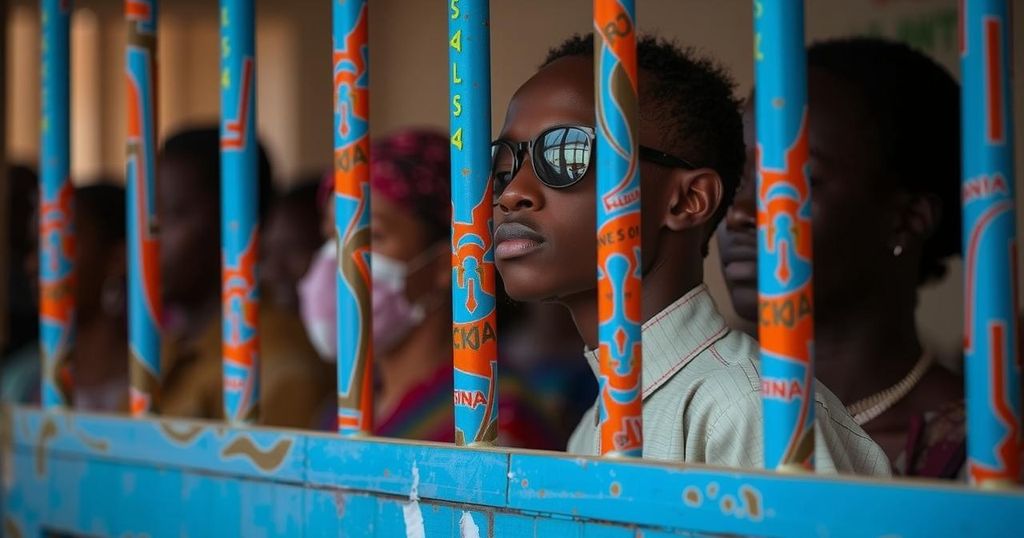The United Nations has condemned arbitrary arrests in South Sudan, revealing that over 1,140 civilians, including women and children, were unlawfully detained between January 2023 and May 2024. The UN calls for the release of these individuals and accountability for the responsible parties, highlighting ongoing human rights violations amidst political instability.
The United Nations has expressed deep concern regarding widespread human rights violations in South Sudan, focusing on the arbitrary arrests of numerous individuals, including women and children. A report published on Wednesday by the UN Office of the High Commissioner for Human Rights and the UN Mission in South Sudan (UNMISS) revealed that between January 2023 and May 2024, at least 1,140 civilians were detained without legal justification, among whom were 87 children.
This alarming trend includes detainments of women and girls resisting arranged marriages, seeking divorces, or facing allegations of adultery. Individuals affiliated with opposition parties were also disproportionately targeted. The UN has condemned these detentions, emphasized that they often stem from actions that should not constitute criminal offenses, and attributed most of the arrests to the government’s actions despite involvement from both state security forces and armed groups.
UN High Commissioner for Human Rights, Volker Turk, has called upon South Sudanese authorities to release those unlawfully held and to ensure accountability for the perpetrators of these abuses. South Sudan, which became independent from Sudan in 2011, has grappled with multifaceted challenges that include ethnic conflict, political infighting, and economic difficulties.
The political landscape remains volatile, with essential components of a peace agreement established in 2018 yet to be fulfilled. Aspects such as the formulation of a permanent constitution and the consolidation of forces loyal to President Salva Kiir and opposition leader Riek Machar remain unresolved. Recently, the transitional government has extended the timeline for implementing the peace accord and postponed elections until December 2026, further contributing to the nation’s ongoing political instability.
The history of South Sudan post-independence is marked by various adversities ranging from ethnic strife to political disputes, economic hardship, and natural calamities. The country has not found a stable governance structure despite a peace agreement achieved in 2018. Failure to realize key provisions of this agreement has perpetuated the cycle of violence and has hindered efforts toward establishing a durable peace in the region.
The UN’s condemnation of arbitrary arrests in South Sudan highlights a significant human rights crisis. The detention of civilians for non-criminal actions, especially targeting vulnerable groups such as women and children, raises urgent concerns about the rule of law in the nation. The continuing implementation delays of the peace agreement exacerbate the country’s political turmoil, necessitating immediate international attention and intervention.
Original Source: newscentral.africa






